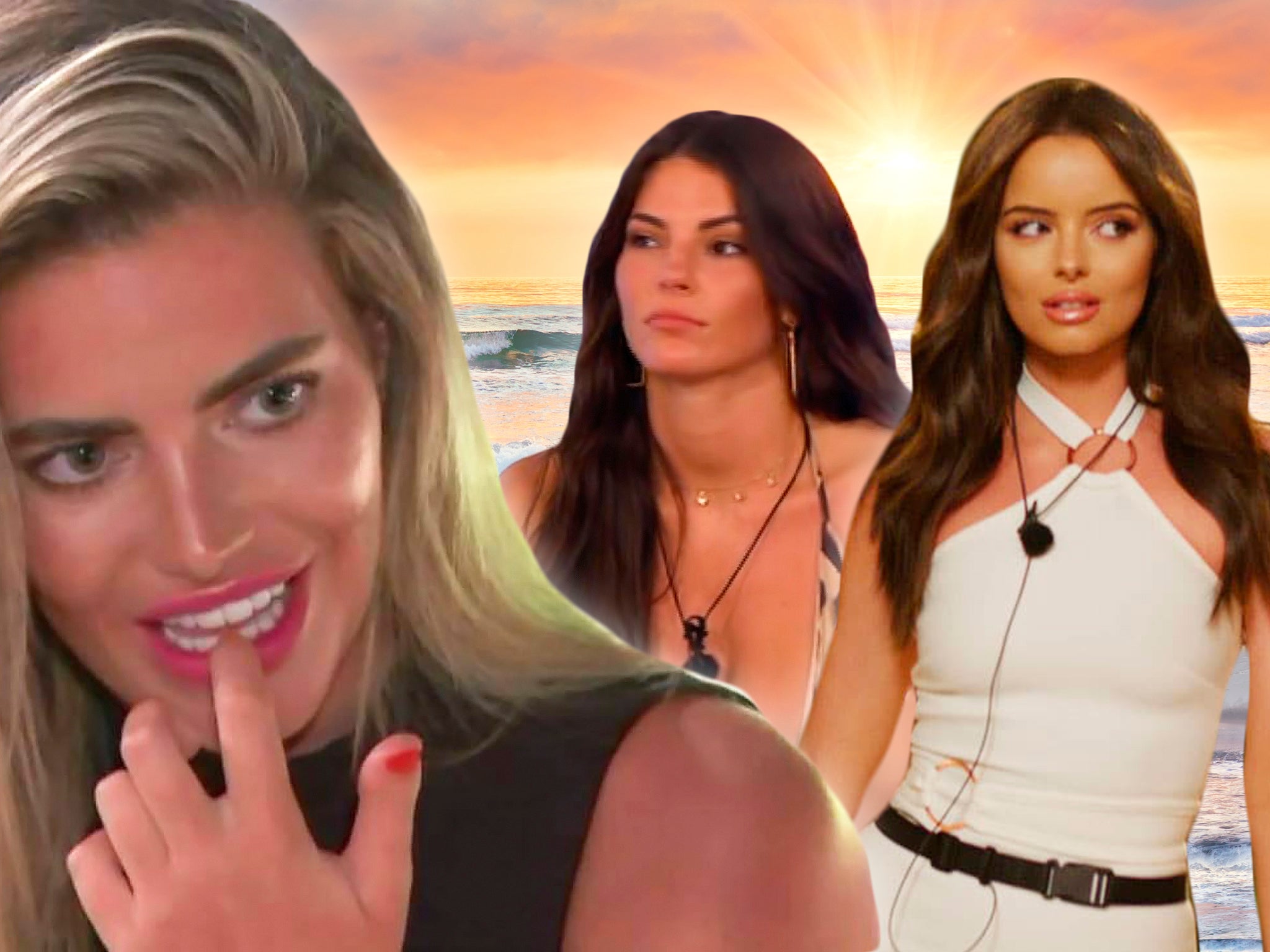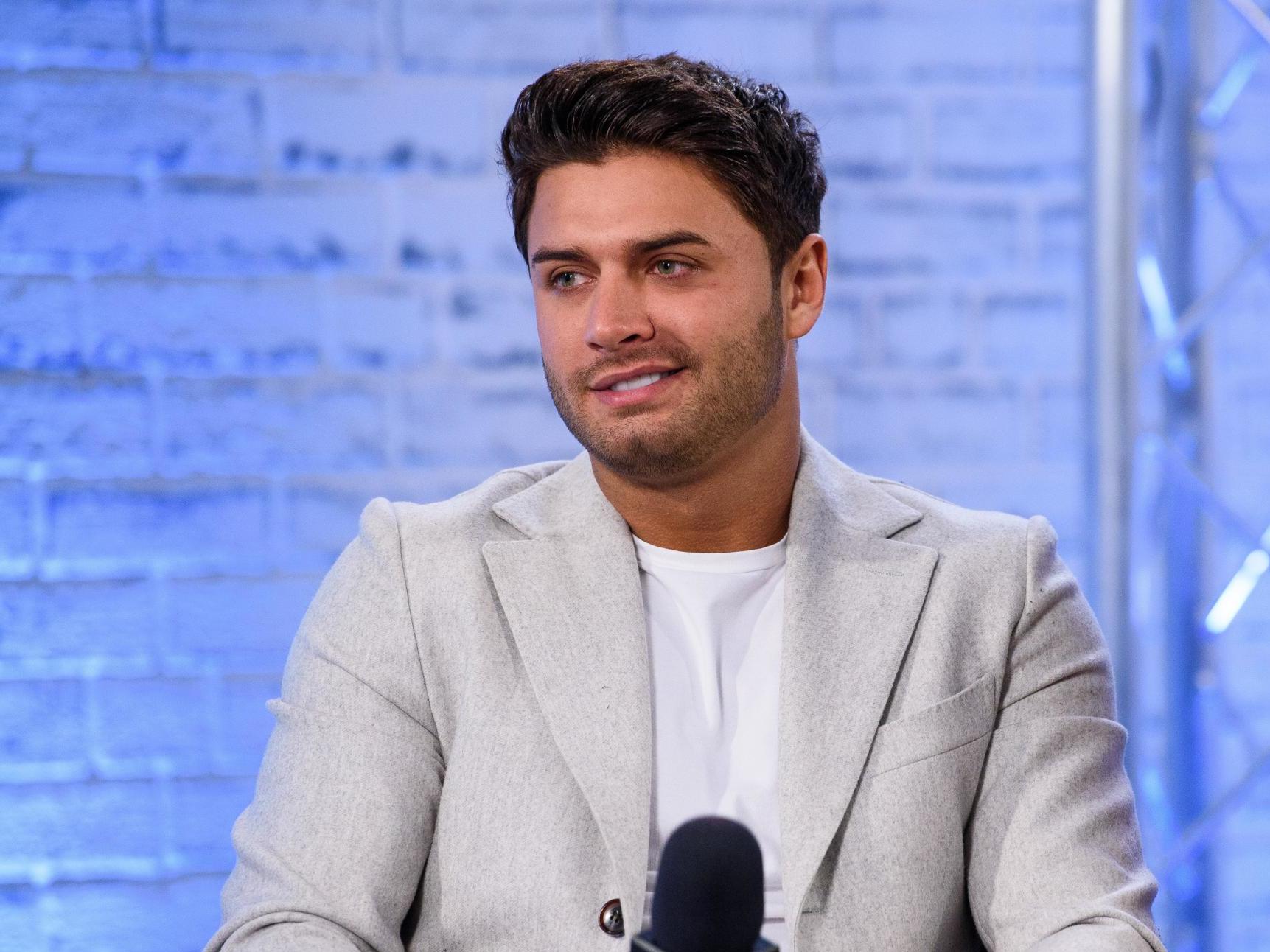‘They’re like lambs to the slaughter’: What happens when you’re made the Love Island villain?
The misbehaviour of reality TV cast members is often afforded the same vitriol as fascists, racists and misogynists. Elise Bell talks to Megan Barton-Hanson, ‘Nasty’ Nick Bateman and a former reality TV editor to explore the phenomenon of the villain edit


Support truly
independent journalism
Our mission is to deliver unbiased, fact-based reporting that holds power to account and exposes the truth.
Whether $5 or $50, every contribution counts.
Support us to deliver journalism without an agenda.

Louise Thomas
Editor
It is June 2018 and I am feral with rage. Veering between WhatsApp chats, Twitter posts and kitchen bitching with my flatmate, I feel a real sense of anger as I blink into the fluorescent blue light of my laptop screen. I’m not alone.
That year, Megan Barton-Hanson was released into the world. Stepping into the villa with an assured confidence so often seen only in fiction, she was the Marilyn Monroe of prime-time ITV2. She was also a “villain”, radiating an aura of menace and seduction so powerful that her name has been synonymous with the show ever since. Her crime? A wink so brazenly sexual that it prompted coupled-up contestant Wes Nelson to un-couple with not-girlfriend Laura Anderson. In plainer terms, two consenting adults decided to end one relationship and begin another on a TV game show manipulated, designed and scripted to offer such opportunities. Despite all this, with righteous vindication I yelled “b****” at a computer, unaware that in a matter of weeks, I would be downloading the Love Island app for the sole purpose of voting to keep her in. I had bought into the villain edit, whether I was aware of it or not.
Three years on from her stay in the eponymous villa, Megan, along with season five’s Maura Higgins of “fanny flutters” fame, has trumped the initial villain edit. She’s made a household name for herself, using her Vice column, podcast and huge platform on Instagram and Onlyfans to address issues such as body dysmorphia, anxiety, depression and the orgasm-gap. She is a Hester Prynne of the Instagram age.
Despite this success, the initial trolling and invasive press attention has left a tangible mark on a woman who auditioned for Love Island, having only seen clips of the show online. “I don’t hold anything back and can be a little bit selfish,” she tells me, “but the way they showed me was just that one side. No one saw the side of me that’s awkward, that’s a good friend, that’s geeky and caring. That could be really damaging to someone who maybe isn’t as tough as I was.”
Six years on from its 2015 reboot, the cultural and social landscape in which Love Island exists has altered dramatically. The deaths of contestants Mike Thalassitis, Sophie Gradon and presenter Caroline Flack have pinpointed an uncomfortable blind spot within a genre of TV that likes to celebrate its own omnipotence.
Mike Thalassitis took his own life less than two years after his appearance on the show. He had been the victim of the “villain edit”, brought on late in the series and introduced to the audience explicitly as a potential threat to the much-loved core cast members. His appearance on the show landed him with the moniker “Muggy Mike”, and in the weeks prior to his death he told Now TV that he had struggled with the impact of his villainous casting after Love Island had ended. In an Instagram tribute, close friend and fellow reality TV star Sam Thompson said: “I’ll never forget the time he pulled me to one side and said thanks. I asked him for what, and he said, ‘Just for calling me Mike, and not the other name’. My heart broke a little bit. Here was a guy that I think knew he wasn't going to be able to get away from the stigma that other people had created for him.”
In an age where social media outcry can ruin lives, the misbehaviour of reality TV cast members is at times afforded the same vitriol as fascists, racists and misogynists. Trolling and consistently abusive messages can be found on the comments section of most Love Island contestants’ personal Instagram posts, but for those lumped with the villain edit, there is a tacit complicity between the decisions of producers in the editing suite and the harassment of individuals by the public and media. In 2021, can the villain edit ever be ethical? It’s a question worth grappling with, especially as the excitement and expectation preceding this year’s Love Island reaches a fever pitch, promising what could be the largest viewing figures ever seen in the show’s history.
The villain edit is nothing new. It’s a tale as old as reality TV itself. From the warmer shores of Sydney, Australia, the once most hated man in the UK, Nick Bateman, has moved on from the Nasty Nick persona crafted in the front pages of the tabloid press. Quitting his job as a broker in the City, Bateman was one of the first reality TV villains the British public had ever seen, earning his reputation on the inaugural season of Big Brother. “I had no idea what I was getting myself into,” says Bateman. Indeed, premiering on Channel 4 to an assumed late-night audience of only students and twentysomethings, Big Brother proved a cultural phenomenon, the cast emerging from their isolation to crowds of screaming fans and overnight fame. “It is very dangerous to do these shows if you have any skeletons in your closet, or you’re vulnerable in any way, because they will be brutally exposed in the media.”

As much as Bateman himself admits that “no one wants to play the goodie-goodie”, the at-times vitriolic tabloid headlines were a tough pill to swallow.

Watch Apple TV+ free for 7 days
New subscribers only. £8.99/mo. after free trial. Plan auto-renews until cancelled

Watch Apple TV+ free for 7 days
New subscribers only. £8.99/mo. after free trial. Plan auto-renews until cancelled
Turbocharged by social media, Megan Barton-Hanson left the villa only to receive death threats and detailed abuse. Winter Love Island contestant Biggs Chris escaped the ire of the general public, but his now-girlfriend Rebecca Gormley, who received a similar villain edit on the show, wasn’t so lucky. “She’s the sweetest girl ever, but when you watch it back you really see how things were edited a certain way to give her that reputation,” said Biggs.
Even if the aesthetics of reality TV have changed – from the lawless lo-fi days of scripted reality to the rippling torsos, toned legs and hair extensions of the present day – the phenomenon of the villain edit has remained the same. It’s something that former reality TV editor, and now psychotherapist Ian Spencer, knows all too well.
“People entering into reality TV are like lambs to the slaughter,” says Spencer, who became disillusioned by the industry over the span of his 20-year career. “Reality TV could not exist, in my experience, if you had someone caring about the individual. What I mean by that is, were I a therapist on the set with my client, I could almost guarantee you that I would be saying, ‘Stop. This is horrible.’” Yet as an avid reality TV fan, Spencer is the first to admit that the dramatic tension needed to sustain the length and pace of a series can rarely be achieved without a villain figure playing centre stage. “Producers are not bad people, although there are some, and the same goes for editors. Fundamentally, they are trying to make a TV show and if their TV show isn’t salacious, or exciting or doesn’t have extreme tension within the cast, they don’t have a show.”
It is a point that is echoed throughout the industry: that reality TV is an art form in and of itself, and as such, can operate under the same narrative devices as fiction, theatre, or film. Every hero must have a villain, and for a show as popular as Love Island (there are upwards of 98,000 applications per season), producers have plenty to choose from.
In the case of Love Island, producers and editors have a growing reputation as the hidden villains of reality TV. That’s perhaps why, under intensified public scrutiny, ITV made the decision to review its aftercare package for competing contestants. These new protocols include comprehensive psychological support, free therapy, extensive financial planning advice and training on handling potential negativity on social media. It’s a bumper package, although whether contestants can ever truly be prepared to forcibly find love on a sequestered island, before being flown back to a country where most people between the ages of 16 and 25 know their name, remains to be seen.
For Megan, the situation is a complex one. “On earlier shows like Big Brother, you could just avoid the aisle with the tabloids stocked and not read the criticism about you. You can’t do that now. You can’t switch off from it. It is constant.”
Yet it is hard to pinpoint what exactly is to blame, with Ian Spencer citing the ouroboros quality of reality TV: a snake eating its own tail. A circle of complicity. What is universally agreed upon is that the joy of Love Island can be found precisely in the superficial hyper-reality it promotes, selling to us a better looking, sun-dappled, more exciting version of the truth. With a promised culture shift at ITV, and a public urging one another to “be kind”, a tamer, more gentle version of the villain edit, both in the editing suite and in the tabloid press, might just survive another year. Let’s hope we’ve learnt our lesson.
If you are experiencing feelings of distress and isolation, or are struggling to cope, Samaritans offers support. You can speak to someone in confidence over the phone on 116 123 (UK and ROI), email jo@samaritans.org, or visit the Samaritans website here.
If you are based in the USA, and you or someone you know needs mental health assistance right now, call National Suicide Prevention Helpline on 1-800-273-TALK (8255). The Helpline is a free, confidential crisis hotline that is available to everyone 24 hours a day, seven days a week.



Join our commenting forum
Join thought-provoking conversations, follow other Independent readers and see their replies
Comments